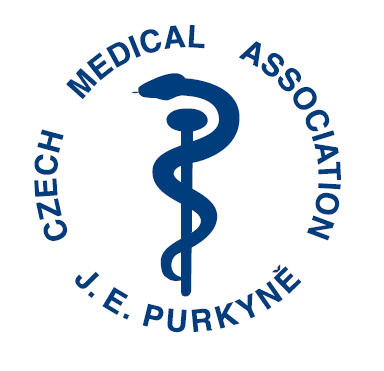Partners and Host
Partner organisations and Host organisations
Following the successful inaugural Global Evidence Summit in Cape Town in 2017, four global leaders in evidence-based policy and practice, Cochrane, JBI, GIN and the Campbell Collaboration have again come together to join their forces to deliver the highly anticipated second Global Evidence Summit in Prague in 2024!
The GES was conceptualised by the organising partners and the spirit of the Summit ‘Using evidence. Improving lives’ aims to:
• advance the use of reliable research evidence in addressing some of the world’s most serious health and social challenges;
• bring together multidisciplinary factors from the global evidence community;
• facilitate communication and collaboration between all those working on the synthesis, dissemination, and implementation of evidence
• promote evidence-based decision-making worldwide;
• strengthen ties between all partners and supporters; and
• showcase the work of all partners and supporters with high-quality scientific presentations.
More information about the organising partners can be found below.
Partner organisations

Cochrane is an international network with headquarters in the UK, a registered not-for-profit organisation, and a member of the UK National Council for Voluntary Organisations.
Cochrane is for anyone interested in using high-quality information to make health decisions. Whether you are a clinician, patient or carer, researcher, or policy-maker, Cochrane evidence provides a powerful tool to enhance your healthcare knowledge and decision-making.
Cochrane's members and supporters come from more than 190 countries, worldwide. We are researchers, health professionals, patients, carers, and people passionate about improving health outcomes for everyone, everywhere. Our global independent network gathers and summarizes the best evidence from research to help you make informed choices about treatment and we have been doing this for 30 years.
We do not accept commercial or conflicted funding. This is vital for us to generate authoritative and reliable information, working freely, unconstrained by commercial and financial interests.
JBI is an international research organisation based at the University of Adelaide, South Australia. JBI develops and delivers unique evidence-based information, software, education and training designed to improve healthcare practice and health outcomes globally. For more than 25 years JBI has worked with its global network of universities and hospitals across 40+ countries to ensure that researchers, policymakers and health professionals can access high quality evidence, appraise diverse types of evidence and apply evidence at the point of care.
The Guidelines International Network, or GIN, is the connector in the guideline world. Established in 2002, we currently have 119 organisational members and 107 individual members from 47 countries – all with a common goal of improving healthcare, through using evidence and implementing evidence-based guidelines.
GIN's aims are simple – to enable and facilitate networking and collaboration, whether national or international, bring the best minds together and support continuous learning and improvement and at the same time, reduce duplication of effort across the guideline world.
The Campbell Collaboration is an international research network that promotes evidence-based decision- and policy-making through the production of systematic reviews and other types of evidence synthesis. Campbell is composed of editorial groups that coordinate the production of systematic reviews and evidence and gap maps in the following areas: Ageing, Business & Management, Children and Young Persons Wellbeing, Climate Solutions, Crime & Justice, Disability, Education, International Development, Knowledge Translation & Implementation, Methods and Social Welfare.
Host organisations
The NIKEZ Methodological center placed under Institute of Health Information and Statistics of the Czech Republic is an umbrella institution for Cochrane Czech Republic, The Czech Republic: A JBI Center of Excellence and Czech GRADE Network. NIKEZ is an organizational member of GIN based on the approval of the Ministry of Health of the Czech Republic. It is a unique center, even in a worldwide context, that joins together four significant international organizations dealing with evidence-based medicine, research methodology, systematic reviews, and clinical practice guidelines. Our focus as healthcare professionals since opening in 2013, is on advocating for evidence-based healthcare, high quality research and trustworthy systematic reviews and guidelines in the Czech Republic and Central Europe.
The Institute of Health Information and Statistics of the Czech Republic (“IHIS CR“), established in 1960 by the Ministry of Health, serves as a key state organizational unit. It is tasked with the administration of the National Health Information System (NHIS), as outlined in the Act No. 372/2011 Coll., on Health Services. The IHIS CR adheres to EU's General Data Protection Regulation (GDPR) in handling personal data within the NHIS, ensuring privacy and compliance with legal provisions for data sharing.
Functioning within the framework of the National Statistical Service, IHIS CR collaborates with the Czech Statistical Office and other entities, facilitating the integration of NHIS data with healthcare providers and various information systems in the health sector. Upholding the European Statistics Code of Practice, the Institute commits to maintaining the quality and credibility of its data, characterized by principles like professional independence and data reliability.
The Ministry of Health of the Czech Republic is the central authority responsible for a broad range of health-related areas within the country. Its responsibilities include healthcare services, public health protection, health research activities, and the management of directly controlled health facilities. Additionally, the ministry oversees the handling of drugs, preparations, and other agents, and is involved in the search, protection, and utilization of natural health resources, including natural spas and mineral water resources. It also plays a significant role in the management of medicaments and technical equipment for prevention, diagnostics, and treatment of individuals, alongside health insurance and health information systems. An integral part of the Ministry is the Czech Spa Inspectorate, as well as the Inspectorate of Narcotic Drugs and Psychotropic Substances, highlighting its comprehensive approach to healthcare and public health in the Czech Republic.
Founded in 1960, the Ministry has been a pivotal institution in the Czech Republic, operating under the government to ensure the health and well-being of its citizens. The Ministry's extensive domain reflects its critical role in safeguarding public health, emphasizing its commitment to providing top-tier healthcare services and engaging in health research to advance medical knowledge and practices within the country. By regulating and overseeing various aspects of the health system, from healthcare provision to the control of pharmaceuticals and the promotion of natural health resources, the Ministry of Health plays a crucial role in maintaining and enhancing the health standards of the Czech population.
Endorsing organisations
The Czech Medical Association of J. E. Purkyně (CzMA) stands as a voluntary, independent association comprising individuals—physicians, pharmacists, other healthcare personnel, and related fields—and legal entities. Operating within the Czech Republic, with its headquarters in Prague, CzMA functions as a legal entity guided by its own Bylaws of Association. These bylaws were initially adopted during a congress of delegates on November 11, 1992, and have since been amended in subsequent congresses in 1994, 1996, 2003, and 2011.
CzMA's structure is built around professional societies, which are established based on expertise, and physician fellowships, formed according to geographic principles. These organizational units, requiring a minimum of 50 members at their inception, possess the autonomy to engage in professional activities and bear full responsibility for them, despite not being independent legal entities. Furthermore, they hold the capacity to internally subdivide, create smaller sections, and engage in international collaborations with professional associations abroad, enriching their professional and operational scope.







